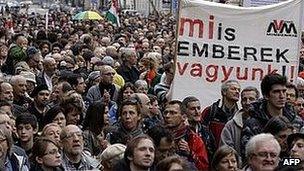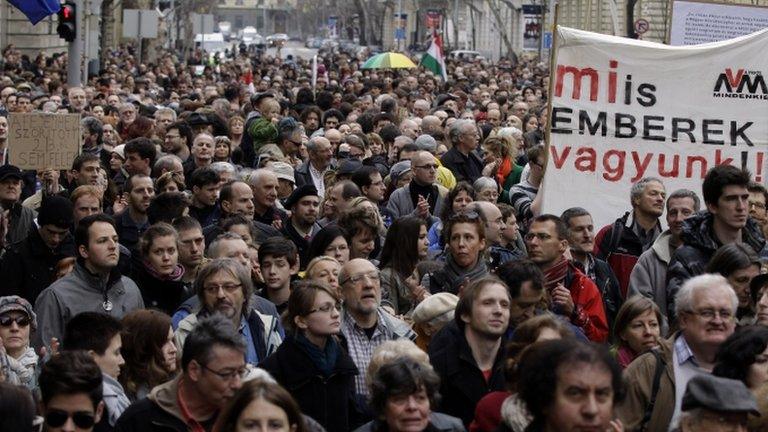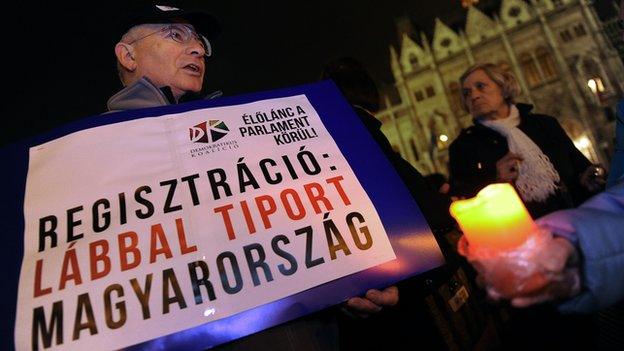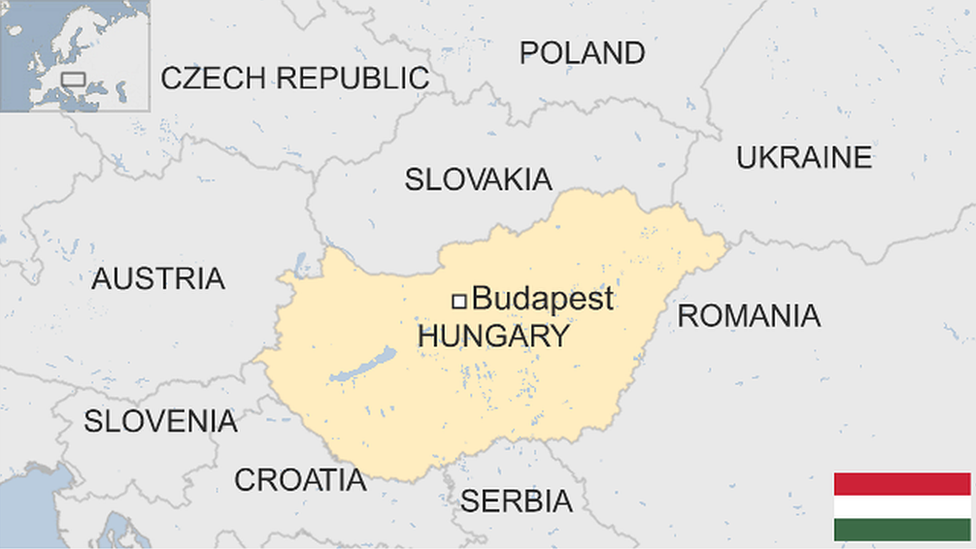Hungary defies critics over change to constitution
- Published

Protesters in Budapest say the Fidesz proposals would undermine civil liberties
Hungary's parliament has adopted a package of constitutional changes proposed by the ruling Fidesz party which critics say undermine democracy.
The conservative party has two-thirds of the seats in parliament, but the measures were approved overwhelmingly as opposition MPs boycotted the vote.
The amendment tightens up the laws on higher education, homelessness, election campaigns and family rights.
The EU expressed concern about the bill, which defies some court rulings.
"These amendments raise concerns with respect to the principle of the rule of law, EU law and Council of Europe standards," a statement by European Commission President Jose Manuel Barroso and Council of Europe Secretary General Thorbjorn Jagland said.
Protesters gathered outside the building and were planning a march to the president's palace.
Before the vote, Hungarian Prime Minister Viktor Orban accused the EU of interfering in Budapest's domestic affairs.
The lengthy amendment overturns earlier constitutional court rulings and limits the court's right to challenge laws passed by parliament in future. It also includes:
Restrictions on political advertisements in the publicly run media during election campaigns
A rule that university students can only get state grants if they pledge to work in Hungary after graduation
Fines or prison terms for homeless people who sleep on the streets.
It is the fourth amendment to Hungary's new basic law since it came into force just 14 months ago - a fact which helps underpin criticism that the new constitution was both hurried and flawed, the BBC's Nick Thorpe in Budapest reports.
Critics at home and abroad say the amendment dismantles the architecture of democracy established since the fall of communism, and allows Fidesz to cement its own ideology at the heart of the state.
'Scandalous' ruling
The measure was passed by 265 votes to 11, with 33 abstentions.
Fidesz and its allies the Christian Democrats voted for, along with three independents.
The opposition Socialists boycotted the vote, walking out of parliament and hanging black flags from their windows to symbolise a black day for Hungarian democracy.
Leader Attila Mesterhazy said Mr Orban's aim was to "take revenge on the constitutional court, students, opposition parties, and all those who do not do as the government wishes".
Fidesz argues the changes are necessary to make a clean break with the previous constitution, which was adopted in 1989 when Hungary threw off communist rule.
Mr Orban had been under pressure at least to postpone Monday's vote until experts from the Council of Europe - Europe's main human rights watchdog - could examine the amendment, our correspondent says.
German MEP Alexander Lambsdorff urged the European Commission to investigate a possible "systematic violation of European values" by the Hungarian government ahead of the vote, the newspaper Der Tagesspiegel reports.
In a separate development, the prime minister described as "scandalous" a court decision against the government over state-imposed gas price cuts.
He said he would not accept the ruling scrapping recent 10% price cuts and would instead submit a new proposal to lower prices even further.
The government's measure is popular with many Hungarians who are struggling to pay their bills, but energy companies have complained that they have to foot the bill.
- Published11 March 2013

- Published4 January 2013

- Published4 June 2024

- Published17 January 2012
